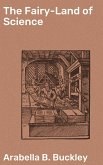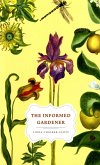In "The Eagle's Nest," John Ruskin presents a meditative exploration of nature, art, and the intertwining of the two. Through a series of essays, Ruskin reflects on the beauty of the environment, particularly the grandeur and majesty of the Alps, while arguing for the moral imperative of art to convey deeper truths. His literary style blends vivid imagery with lyrical prose, situating the work within the broader context of the Romantic movement, which emphasized emotional depth and the sublime experiences of nature. Ruskin's analysis is both poetic and philosophical, encouraging readers to perceive art as an extension of natural beauty and vice versa. John Ruskin, a prominent art critic and social thinker of the Victorian era, was deeply influenced by his surroundings and experiences traveling through Europe. His work is rooted in the belief that art should elevate the human spirit and inspire moral responsibility. Ruskin's advocacy for the connection between artistry and the natural world reflects his concerns about industrialization and its impact on beauty and ethics, guiding his vision in "The Eagle's Nest" toward a hopeful reconciliation of these elements. Readers seeking a profound understanding of the confluence of nature and art will find "The Eagle's Nest" both enlightening and inspiring. Ruskin's insights serve not only as a critique of contemporary society but also as a timeless call to reconnect with the world around us. This book is essential for anyone intrigued by the philosophical dimensions of art and the natural environment.
Dieser Download kann aus rechtlichen Gründen nur mit Rechnungsadresse in A, B, BG, CY, CZ, D, DK, EW, E, FIN, F, GR, H, IRL, I, LT, L, LR, M, NL, PL, P, R, S, SLO, SK ausgeliefert werden.









